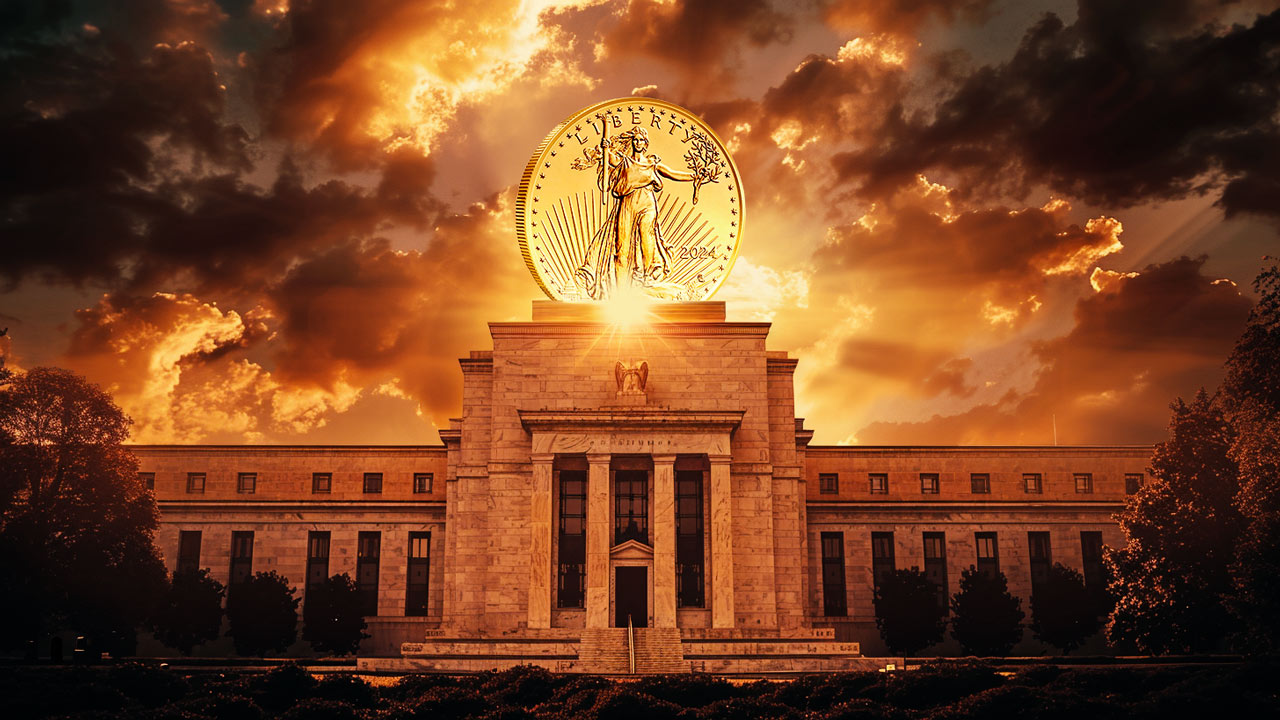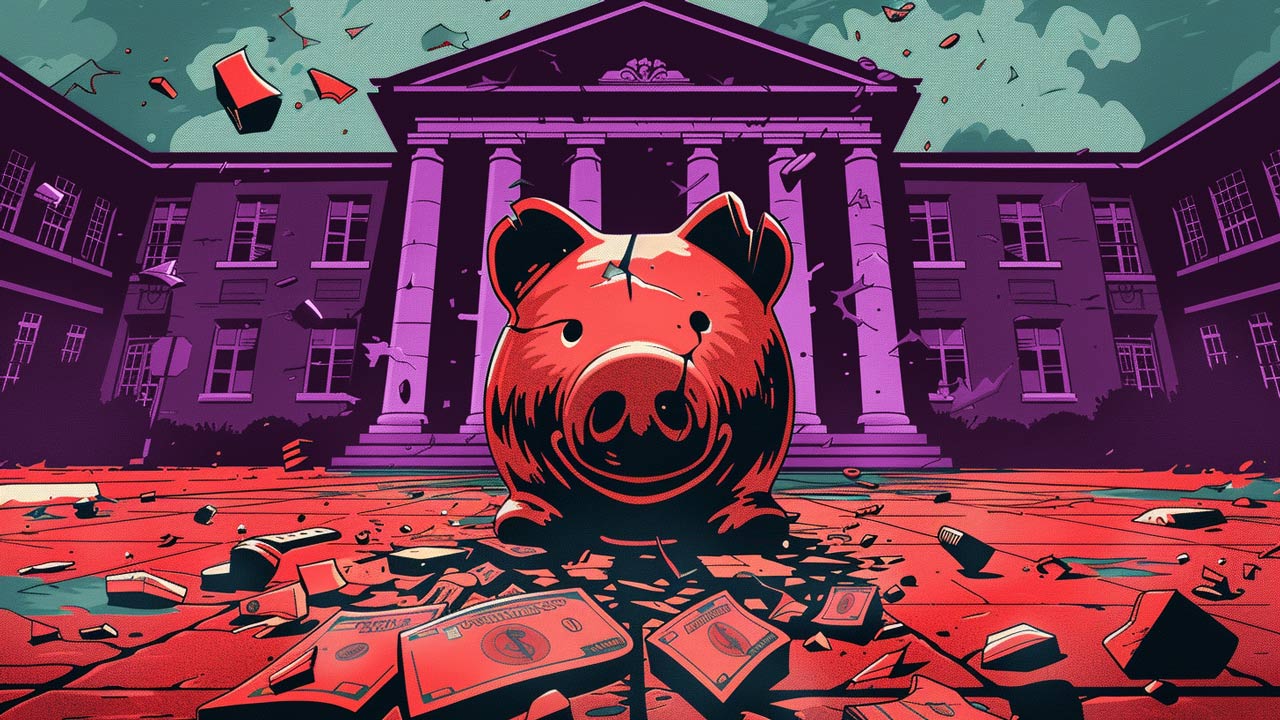Economic Fact & Fiction: Disney World & Paul Krugman (Audio)
Peter Schiff just returned from a family vacation and starts his latest podcast by discussing his observations about Disney World. He goes on to review the latest economic data. Finally, Peter picks apart Paul Krugman’s latest commentary, which is largely a response to German Finance Minister Wolfgang Schauble’s rational, conservative economic advice.
Highlight’s from Peter’s podcast:
“The Hall of Presidents [at Disney World]… has all the presidents from George Washington to Barack Obama. They really do a wonderful job bringing these fake mechanical presidents to life… But the exhibit itself is located in Liberty Square in the Magic Kingdom and they bill the show as “the leaders of liberty”… But they weren’t really the leaders of liberty, at least the presidents that they featured, because they only went over a half-a-dozen or so presidents specifically… They were not the leaders of liberty, they were the destroyers of liberty. They pretty much omitted from the conversation the presidents that really believed in individual liberty and led the charge in that respect…
“They focused on presidents that were anti-business. ‘Big business is there to hurt you, and these were the presidents that saved us from these evil businessmen.’ Now, they started out with George Washington… I have no problem with them beginning with the father of our nation… They skipped to Andrew Jackson… I don’t have a big problem with Jackson. After all, he let the first bank of the United States go under, so he wasn’t a bad president. But they only focused on Andrew Jackson to highlight the fact that he came from humble origins, that he was a regular guy, a man of the people…
“Then they skipped all the way to Abraham Lincoln… It’s hard to not highlight Lincoln…I’m not going to dispute that he was a very significant president and did some good things and some things that weren’t so good. Certainly there were a lot of bad precedents that came out of the Civil War, like paper money and the income tax… Ultimately, [the Civil War did end slavery] and that is a good thing… But again, there was a revisionist historical slant to the way they covered the story…
“Now, I have a problem with everybody that came [after Lincoln]… They fast-forwarded all the way to Teddy Roosevelt. Why did they like Roosevelt? Because he was the trust buster, because he attacked big business… Then they skipped all the way over to the next Roosevelt, FDR. They went on and on about how FDR saved the country from the greedy businessman. We had a collapse and he came in and brought us out of the Depression, which of course, didn’t happen. Roosevelt did not bring us out of the Depression… He inherited it from Hoover, and then he made it worse… He promised to balance the budget, to cut government spending, lower taxes – that’s what Roosevelt ran on. When he was elected, he abandoned everything he ran on and proceeded to continue all the failed policies of Hoover…
“The recovery didn’t really start until government dramatically shrank in the years after the ending of hostilities [of World War II], when government cut spending, when government began to pay back the money it borrowed. That’s when the peace-time economy really started to grow. We didn’t get out of the Depression because of Roosevelt; we got out of the Depression despite Roosevelt. And of course, it wouldn’t have been a depression had Roosevelt actually let the market function…
“The stock market ended the week on a negative note. The Dow was down 279 points. The NASDAQ down 75. The Dow, I believe, is now negative on the year. At one point it was down about 350 points on Friday. Again, everybody is looking for excuses. Some people were blaming it on Greece; some people were blaming it on a decline in China. Nobody wants to accept the fact that maybe it has nothing to do with what’s going on in other countries, and everything to do with the problems we have here in the United States…
“The worst [economic data] was Thursday, when it comes to the housing starts, where the numbers for both starts and permits were way, way below estimates. We were supposed to get a big bounce back in March, because of the bad weather in February. They were looking for housing starts of 1.04 million units. Instead, we got 0.926 [million], which was barely above the number we got from February. So just a slight increase in housing starts, even though they were expecting a big increase… Now in permits, they were actually expecting a small decrease. Instead, we got a larger decrease in permits… They were looking for 1.085 million, and we got 1.039 million. Of course, permits have nothing to do with the weather. You’re just taking out a permit, you’re not actually doing anything…
“It was the core [CPI], when you strip out food and energy – They were looking for 0.1 for the core, and instead the core was up 0.2, twice what they expected… They kept talking about the better-than-expected inflation data. Better than expected? Inflation being higher than they thought was better than expected. This is how they look at it. If you actually want to know why core inflation was up so much… What was leading the way in the core was increases in rents and healthcare. And that’s good news? That your rent went up? … Same thing with medical bills. ‘Hey, it costs more money to go to the doctor, that’s good news!’ … This is the topsy-turvy world that we live in…
“I wanted to point out [Paul Krugman’s] latest piece: ‘That Old Time Economics’… Once again, he is patting himself on the back for having been right and criticizing everybody else who was against him, particularly Europe… Europe has been a very Keynesian-ish society. Many of these European nations have had big governments that you think Krugman would love. They run big deficits; they have lots of redistributive programs; well-fare states. Yet they’re in crises. Somehow Krugman thinks that Europe proves that Keynesianism works… When in fact, Europe proves the opposite. Europe is in trouble precisely because they’ve done all the things Paul Krugman thinks is so great…
“Krugman references an article by Wolfgang Schaeuble, who is the finance minister in Germany… He basically says that [Wolfgang Schaeuble’s article is] ‘a flat-out rejection of everything we know about macroeconomics.’ That’s right! Because macroeconomics is BS. It is the astrology of astronomy. It is complete nonsense and it ought to be rejected… [Schaeuble] makes a lot of good points, particularly about not being tempted to go with the quick fix, the short-term fix of stimulus. Because it has very severe long-term consequences. That’s what Paul Krugman doesn’t understand… “
Get Peter Schiff’s latest gold market analysis – click here – for a free subscription to his exclusive weekly email updates.
Interested in learning more about physical gold and silver?
Call 1-888-GOLD-160 and speak with a Precious Metals Specialist today!



 Decades of negative interest rate policy in Japan have ended. That could mean the end of the $20 trillion “yen carry trade,” once one of the most popular trades on foreign exchange markets, and a chain reaction in the global economy. The yen carry trade is when investors borrow yen to buy assets denominated in […]
Decades of negative interest rate policy in Japan have ended. That could mean the end of the $20 trillion “yen carry trade,” once one of the most popular trades on foreign exchange markets, and a chain reaction in the global economy. The yen carry trade is when investors borrow yen to buy assets denominated in […] With a hot CPI report casting a shadow of doubt on the likelihood of a June interest rate cut, all eyes are on the Fed. But they’ve caught themselves in a “damned if they do, damned if they don’t” moment for the economy — and the news for gold is good regardless.
With a hot CPI report casting a shadow of doubt on the likelihood of a June interest rate cut, all eyes are on the Fed. But they’ve caught themselves in a “damned if they do, damned if they don’t” moment for the economy — and the news for gold is good regardless.  It’s no secret that the American public is wildly ignorant of many issues that are central to the success of our nation. Just a generation ago it would have been unthinkable that less than half of the American population could recognize all three branches of government. America is in most cases far less educated about its government […]
It’s no secret that the American public is wildly ignorant of many issues that are central to the success of our nation. Just a generation ago it would have been unthinkable that less than half of the American population could recognize all three branches of government. America is in most cases far less educated about its government […] In investing, “Buy low, sell high” is among the most well-known sayings, and generally, it’s good advice. But with gold still holding near its historic all-time highs, central banks led by China are bucking the classic adage and smash-buying more, buying the top to fortify themselves against a global monetary and financial blow-up.
In investing, “Buy low, sell high” is among the most well-known sayings, and generally, it’s good advice. But with gold still holding near its historic all-time highs, central banks led by China are bucking the classic adage and smash-buying more, buying the top to fortify themselves against a global monetary and financial blow-up. When John Bogle died in 2019, people around the world mourned. Bogle created the Vanguard Group and made the index fund mainstream. Index funds are investment vehicles that invest in a class of investments as a whole, rather than trying to predict what specific stocks or securities will do best. So an investor could invest in an […]
When John Bogle died in 2019, people around the world mourned. Bogle created the Vanguard Group and made the index fund mainstream. Index funds are investment vehicles that invest in a class of investments as a whole, rather than trying to predict what specific stocks or securities will do best. So an investor could invest in an […]
Leave a Reply